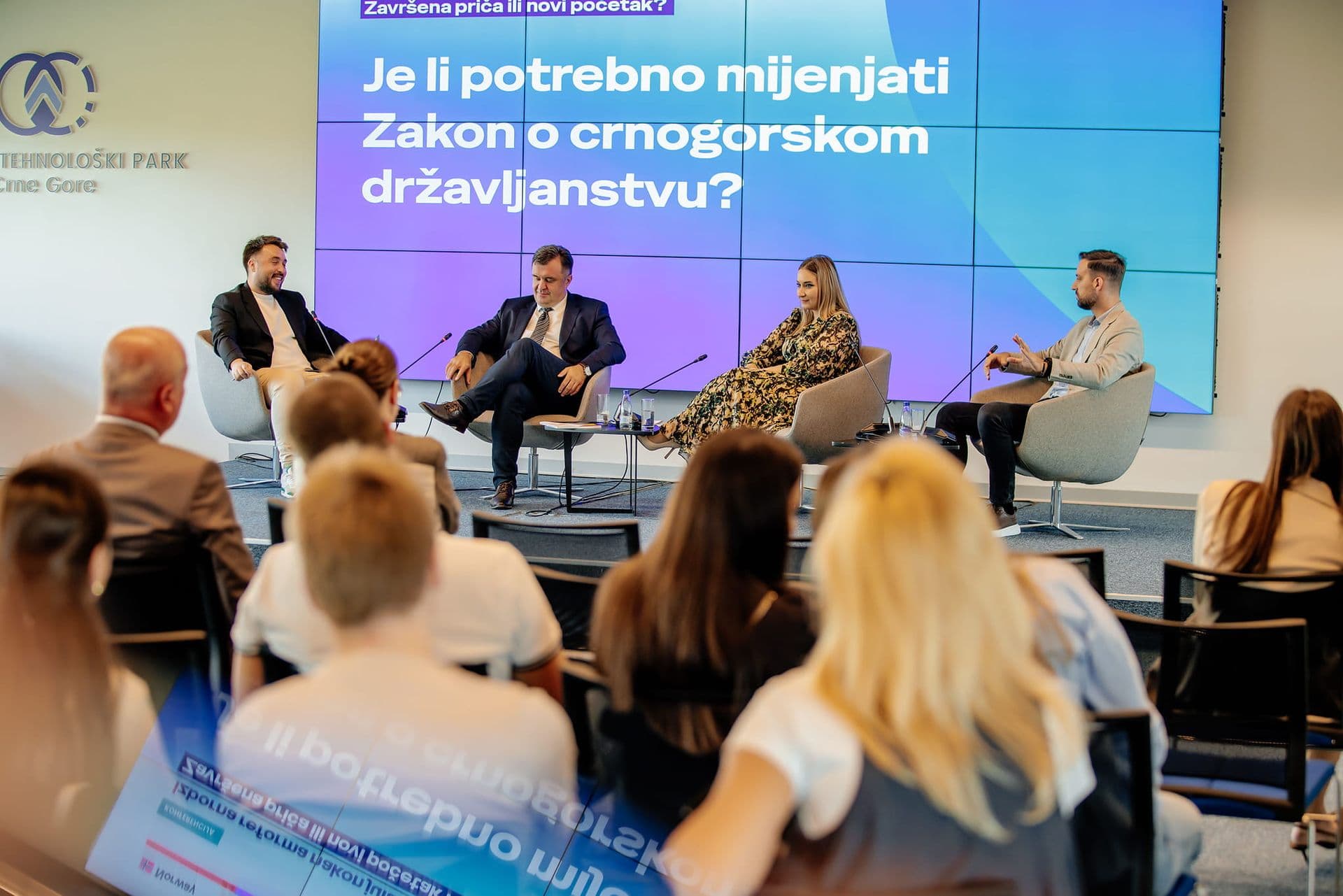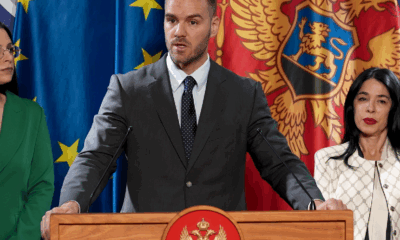Sports
Montenegro’s Path to EU At Risk as Dual Citizenship Debate Emerges

The debate surrounding the introduction of dual citizenship in Montenegro is intensifying, with potential implications for the country’s European Union aspirations. During a recent panel discussion titled “Is There a Need to Change the Law on Montenegrin Citizenship?” organized by the Center for Democratic Transition (CDT), experts expressed concerns that pursuing dual citizenship could jeopardize Montenegro’s chances of joining the EU.
The panel, part of the regional SMART Balkan project and supported by the Ministry of Foreign Affairs of Norway, highlighted a proposal from the Democratic People’s Party (DNP) to adopt a model similar to Turkey’s “blue card” system. This would allow Montenegrin expatriates without citizenship to enjoy many rights typically reserved for citizens, excluding voting rights. Maja Vučelić, a representative from the Civis party, firmly stated, “We must not allow any changes to the Constitution regarding this issue.”
Vučelić emphasized that the government should prioritize European integration, economic reforms, and the rule of law rather than identity politics. She questioned the timing of the dual citizenship proposal, given the unresolved electoral register issues and residency problems in Montenegro. “Introducing dual citizenship could undermine trust in the electoral process,” she cautioned, suggesting that political actors pushing for dual citizenship risk obstructing the country’s European path.
Nikola Zirojević, a member of the Social Democrats, compared Montenegro’s situation to that of Turkey, pointing out the significant demographic differences between the two countries. “Two hundred thousand new citizens would represent a third of Montenegro’s current population, whereas the same number in Turkey would be just one-eightieth,” he noted. He further explained that the political situations differ greatly, asserting that Turkish citizens abroad are not influenced by external power centers in the same way Montenegrin citizens potentially would be.
Zirojević argued that constitutional changes would be necessary for the “blue card” principle to function effectively in Montenegro. He expressed skepticism regarding the motivations behind the proposal, suggesting that it could open a “Pandora’s box” of further constitutional revisions, potentially igniting debates over language, flags, and other national symbols.
The discussion also touched upon existing electoral engineering issues, with Zlatko Vujović, a representative from the academic community, illustrating concerns from the recent elections in Herceg Novi. He revealed that analyses indicated a 10.54% rate of double registrations in the electoral roll, with some individuals registered in Montenegro, Serbia, and Bosnia and Herzegovina. Such irregularities raise concerns about the integrity of the electoral process.
Zirojević pointed out a double standard regarding citizenship information, citing that while there was swift information about Milojko Spajić’s dual citizenship, similar clarity has not been afforded to Andrija Mandić. This inconsistency in transparency is seen as a significant issue.
Vujović also highlighted the legal rights of Montenegrin citizens working abroad, clarifying that many exercise their rights lawfully and that this should not be conflated with illegal residency registrations. He warned that if Montenegro were to liberalize its system without caution, it could lead to a demographic shift that might affect political representation.
As the panel concluded, Vučelić reiterated her belief that any attempts to obstruct Montenegro’s EU path should prompt a reevaluation of the roles of those involved in the government. “We cannot afford to miss this opportunity for integration,” she insisted.
While the debate over dual citizenship continues, it is clear that the implications of this issue are far-reaching, potentially impacting Montenegro’s political stability and European integration efforts. The discussions reflect a critical moment for the country, as it navigates complex domestic issues against the backdrop of broader geopolitical aspirations.
-

 Entertainment3 months ago
Entertainment3 months agoAnn Ming Reflects on ITV’s ‘I Fought the Law’ Drama
-

 Entertainment4 months ago
Entertainment4 months agoKate Garraway Sells £2 Million Home Amid Financial Struggles
-

 Health3 months ago
Health3 months agoKatie Price Faces New Health Concerns After Cancer Symptoms Resurface
-

 Entertainment3 months ago
Entertainment3 months agoCoronation Street’s Carl Webster Faces Trouble with New Affairs
-

 Entertainment3 months ago
Entertainment3 months agoWhere is Tinder Swindler Simon Leviev? Latest Updates Revealed
-

 World2 weeks ago
World2 weeks agoBailey Announces Heartbreaking Split from Rebecca After Reunion
-

 Entertainment4 months ago
Entertainment4 months agoMarkiplier Addresses AI Controversy During Livestream Response
-

 Entertainment2 weeks ago
Entertainment2 weeks agoCoronation Street Fans React as Todd Faces Heartbreaking Choice
-

 Science1 month ago
Science1 month agoBrian Cox Addresses Claims of Alien Probe in 3I/ATLAS Discovery
-

 Health4 months ago
Health4 months agoCarol Vorderman Reflects on Health Scare and Family Support
-

 Entertainment4 months ago
Entertainment4 months agoKim Cattrall Posts Cryptic Message After HBO’s Sequel Cancellation
-

 Entertainment3 months ago
Entertainment3 months agoOlivia Attwood Opens Up About Fallout with Former Best Friend





















